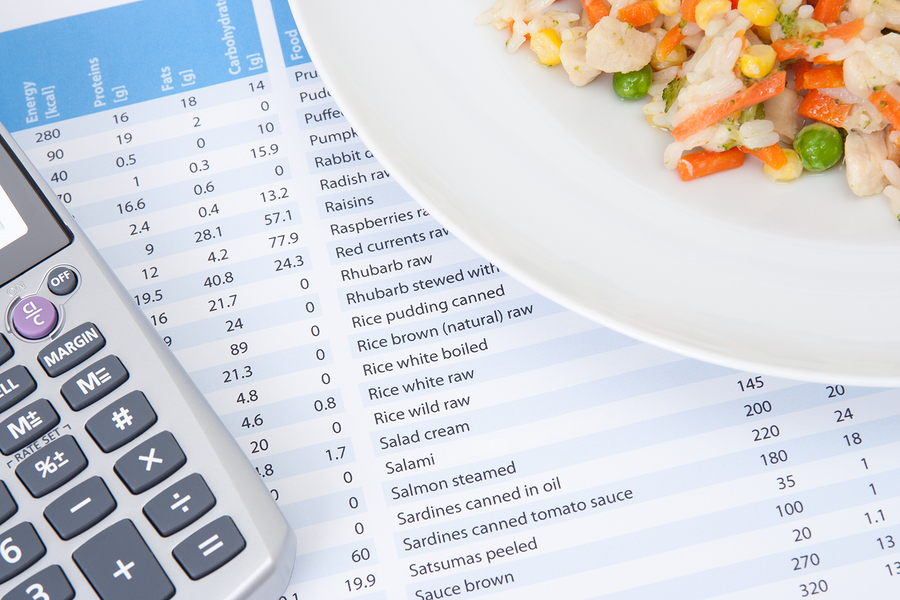Carbohydrates – In the body, a carbohydrate is metabolized mainly into glucose that can be used as an immediate source of energy. Any extra is converted into glycogen, which gets stored in two places, the liver and the muscle.

Any glycogen that is unused by the body will be transformed into a fatty acids, which can later be stored as body fat. For elite athletes this rarely happens due to the dietary needs that accompany the intense training that elite athletes go through. With all the talk about carbohydrates making us fat, we have lost sight that this only occurs if we don’t use the carbohydrates that we eat for fuel.  Carbohydrates are an essential part of our diet, but what type and when you eat them is pretty important to athletes, especially those who are putting serious demands on their bodies. Carbohydrates, in the form of bread, rice, cereal, pasta, and other grains, could be a part of your daily food consumption, but carbohydrates found in other foods, including vegetables, legumes, nuts, & soy should be the carbohydrates that are first on your list. Low carbohydrate diets are becoming popular even among elite athletes, but like any good thing, some people without good dietary information tend to choose plans that make them “look” good as opposed to perform at a high level. The latest diet craze is Keto dieting where almost all carbohydrate sources are eliminated from the diet, forcing the body to utilize ketones as the main energy source. Does this work? Well studies show that it does and typically we have an unlimited store of fat for energy because the body will convert all excess calories over our TDEE (Total Daily Energy Expenditure) as fat.
Carbohydrates are an essential part of our diet, but what type and when you eat them is pretty important to athletes, especially those who are putting serious demands on their bodies. Carbohydrates, in the form of bread, rice, cereal, pasta, and other grains, could be a part of your daily food consumption, but carbohydrates found in other foods, including vegetables, legumes, nuts, & soy should be the carbohydrates that are first on your list. Low carbohydrate diets are becoming popular even among elite athletes, but like any good thing, some people without good dietary information tend to choose plans that make them “look” good as opposed to perform at a high level. The latest diet craze is Keto dieting where almost all carbohydrate sources are eliminated from the diet, forcing the body to utilize ketones as the main energy source. Does this work? Well studies show that it does and typically we have an unlimited store of fat for energy because the body will convert all excess calories over our TDEE (Total Daily Energy Expenditure) as fat.
Keep in mind that glycogen stored in the liver provides energy for vital functions like brain, red blood cells, and kidney cells. The glycogen stores that are in the muscles cannot be used for those vital functions. The brain prefers to burn fat as energy and often does, especially when we are in a fasted state. So while some sport performance could suffer from low carbohydrate diets that place you in glycogen debt, other strength related sports have shown improvement when limiting the number of carbohydrates you consume. That doesn’t mean we need to remove them altogether, nor does it mean we need to go back to the days of unbridled carbohydrate loading. Spikes in blood sugar will drastically reduce your ability to concentrate, but so will low blood sugar levels. In response to a spike in glucose, your pancreas pumps out insulin to transport it to cells throughout your body. This process causes your blood sugar and insulin levels to move up and down rapidly, often times leaving you feeling fatigued and hungry.
So, what do we do?
The answer is not as simple as you might think. The amount and type of carbohydrates is specific to every athlete and is dependent on the type of training that is being executed. This is why Enhanced Sports Performance created the Enhanced Performance Process to begin with. What works for one athlete may not for another.
What we are ultimately trying to accomplish is to store just enough glycogen to support vital functions as well as fuel your training, but not an ounce more than that. This, to a certain degree is trial and error and will take time to develop the best mix of complex, and simple carbohydrates within your nutrition plan.
Weight Loss or more appropriately put “fat loss” has to be addressed separately than fueling enhanced performance. Don’t get me wrong, one can lead to the other, but it is better to remove unwanted fat that hinders enhanced performance before you begin elite training. Common sense and a closely kept food diary goes a long way, but in order to jump higher than you ever have, run faster than you ever have and acquire sports related skills rapidly, your body has to be working at an optimal level. To do that, the type and amount of carbohydrates that you consume must be precise.
If you can’t engage an ESP expert coach or a dietary consultant, here is a good rule of thumb: if you are trying to reduce your fat stores, and you are actively training, consume 10% of your daily calories as carbohydrates. If you are looking to maintain your weight, you should be at 30%. If you are an athlete that endurance trains, you need to increase to roughly 40% of your calorie intake as carbohydrates, but they MUST be slow burning. Note: this is NOT scientifically precise, and you need to consider many other things before making this your nutrition plan.